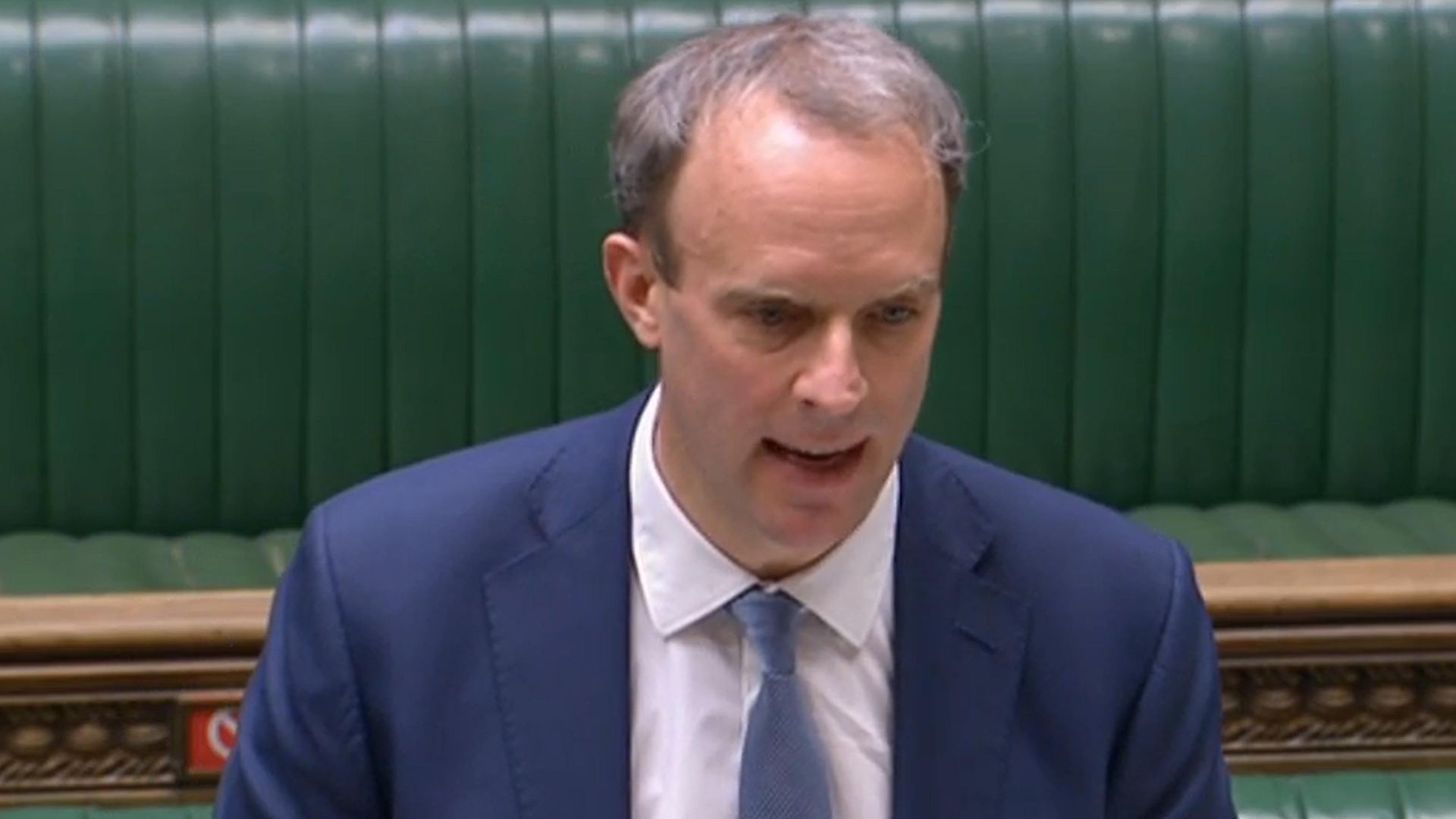
Dominic Raab has been accused of breaking the law over his decision not to offer MPs a vote on shrinking the UK’s aid budget.
A group of 28 MPs from seven different political parties wrote to Raab claiming his plans to abandon the 0.7% of GDP spend on aid would break a law instituted by David Cameron, the i has revealed.
They said: “The ex-Director of Public Prosecutions, Lord Macdonald of River Glaven, has recently investigated the legality of the government’s failure to pass new legislation before the development cut was announced.
“He was clear that the International Development Act 2015 does not make provision to change the 0.7 per cent target itself, only to miss it.”
Layla Moran, the Liberal Democrats’ aid spokesperson, who co-ordinated the letter, said: “We are asking Dominic Raab to tell us what checks and processes this decision went through before being made.
“We also urge him to bring this to parliament for a vote when we return from Recess, even though it would be retrospective. The clear intention of the current law cannot be ridden roughshod over.”
In November, Raab said that the government would “bring forward legislation in due course” in order to change its legal obligations under the 2015 act.
However, Foreign Office lawyers now believe that a clause in the law allowing ministers to reduce aid spending in times of financial turbulence means that no legislation is necessary.
A UK government spokesperson said: “The seismic impact of the pandemic on the UK economy has forced us to take tough but necessary decisions, including temporarily reducing the overall amount we spend on aid.
“We remain a world-leading aid donor and we will spend more than £10bn this year to fight poverty, tackle climate change and improve global health. The UK government has acted in accordance with the International Development Act 2015 throughout this process.”
Critics have claimed that the government does not want to hold a vote because it is nervous about the size of any Conservative backbench rebellion. As many as 30 Tory MPs could oppose the aid cut.
The prime minister has insisted that he intends to restore the 0.7 per cent target as soon as possible but has refused to put a date on any future increase in funding.
Warning: Illegal string offset 'link_id' in /mnt/storage/stage/www/wp-includes/bookmark.php on line 357
Notice: Trying to get property 'link_id' of non-object in /mnt/storage/stage/www/wp-includes/bookmark.php on line 37






